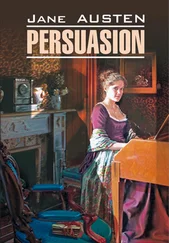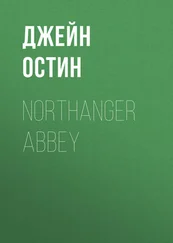The following conversation, which took place between the two friends in the pump-room one morning, after an acquaintance of eight or nine days, is given as a specimen of their very warm attachment, and of the delicacy, discretion, originality of thought, and literary taste which marked the reasonableness of that attachment.
They met by appointment; and as Isabella had arrived nearly five minutes before her friend, her first address naturally was, “My dearest creature, what can have made you so late? I have been waiting for you at least this age!”
“Have you, indeed! I am very sorry for it; but really I thought I was in very good time. It is but just one. I hope you have not been here long?”
“Oh! These ten ages at least. I am sure I have been here this half hour. But now, let us go and sit down at the other end of the room, and enjoy ourselves. I have an hundred things to say to you. In the first place, I was so afraid it would rain this morning, just as I wanted to set off; it looked very showery, and that would have thrown me into agonies! Do you know, I saw the prettiest hat you can imagine, in a shop window in Milsom Street just now – very like yours, only with coquelicot ribbons instead of green; I quite longed for it. But, my dearest Catherine, what have you been doing with yourself all this morning? Have you gone on with Udolpho [46] Udolpho – «Удольфские тайны», готический роман английской писательницы Энн Рэдклифф (1764–1823)
?”
“Yes, I have been reading it ever since I woke; and I am got to the black veil.”
“Are you, indeed? How delightful! Oh! I would not tell you what is behind the black veil for the world [47] for the world – ( разг. ) ни за что на свете
! Are not you wild to know?”
“Oh! Yes, quite; what can it be? But do not tell me – I would not be told upon any account. I know it must be a skeleton, I am sure it is Laurentina’s [48] Laurentina – имеется в виду леди Лорентина, которая таинственным образом пропала в Удольфском замке; впоследствии героиня выясняет, что она не мертва, как предполагалось, но много лет прожила в монастыре под именем Агнессы
skeleton. Oh! I am delighted with the book! I should like to spend my whole life in reading it. I assure you, if it had not been to meet you, I would not have come away from it for all the world.”
“Dear creature! How much I am obliged to you; and when you have finished Udolpho , we will read the Italian [49] the Italian – «Итальянец, или Тайна одной исповеди», готический роман Энн Рэдклифф
together; and I have made out a list of ten or twelve more of the same kind for you.”
“Have you, indeed! How glad I am! What are they all?”
“I will read you their names directly; here they are, in my pocketbook. Castle of Wolfenbach , Clermont , Mysterious Warnings , Necromancer of the Black Forest , Midnight Bell , Orphan of the Rhine , and Horrid Mysteries . [50] Castle of Wolfenbach , Clermont , Mysterious Warnings , Necromancer of the Black Forest , Midnight Bell , Orphan of the Rhine , and Horrid Mysteries . – «Замок Вульфенбаха», готический роман Элайзы Парсонс (1748–1811), написавшей более 60 томов, чтобы обеспечить себя и своих детей после смерти мужа; «Клермонт», произведение ирландской писательницы Ред-жины Марии Рош (1764–1845), готический роман; «Таинственные предостережения», готический роман Элайзы Парсонс; «Некромант, или Повесть Черного леса», роман Карла Фридриха Калерта, написанный под псевдонимом; «Полуночный колокол», готический роман английского писателя и драматурга Френсиса Лэтома (1774–1832); «Рейнский сирота», роман английской писательницы Элинор Смит; «Жуткие тайны», роман немецкого писателя Карла Гросса
Those will last us some time.”
“Yes, pretty well; but are they all horrid, are you sure they are all horrid?”
“Yes, quite sure; for a particular friend of mine, a Miss Andrews, a sweet girl, one of the sweetest creatures in the world, has read every one of them. I wish you knew Miss Andrews, you would be delighted with her. She is netting herself the sweetest cloak you can conceive. I think her as beautiful as an angel, and I am so vexed with the men for not admiring her! I scold them all amazingly about it.”
“Scold them! Do you scold them for not admiring her?”
“Yes, that I do. There is nothing I would not do for those who are really my friends. I have no notion of loving people by halves; it is not my nature. My attachments are always excessively strong. I told Captain Hunt at one of our assemblies this winter that if he was to tease me all night, I would not dance with him, unless he would allow Miss Andrews to be as beautiful as an angel. The men think us incapable of real friendship, you know, and I am determined to show them the difference. Now, if I were to hear anybody speak slightingly of you, I should fire up in a moment: but that is not at all likely, for you are just the kind of girl to be a great favourite with the men.”
“Oh, dear!” cried Catherine, colouring. “How can you say so?”
“I know you very well; you have so much animation, which is exactly what Miss Andrews wants, for I must confess there is something amazingly insipid about her. Oh! I must tell you, that just after we parted yesterday, I saw a young man looking at you so earnestly – I am sure he is in love with you.” Catherine coloured, and disclaimed again. Isabella laughed. “It is very true, upon my honour, but I see how it is; you are indifferent to everybody’s admiration, except that of one gentleman, who shall be nameless. Nay, I cannot blame you” – speaking more seriously – “your feelings are easily understood. Where the heart is really attached, I know very well how little one can be pleased with the attention of anybody else. Everything is so insipid, so uninteresting, that does not relate to the beloved object! I can perfectly comprehend your feelings.”
“But you should not persuade me that I think so very much about Mr. Tilney, for perhaps I may never see him again.”
“Not see him again! My dearest creature, do not talk of it. I am sure you would be miserable if you thought so!”
“No, indeed, I should not. I do not pretend to say that I was not very much pleased with him; but while I have Udolpho to read, I feel as if nobody could make me miserable. Oh! The dreadful black veil! My dear Isabella, I am sure there must be Laurentina’s skeleton behind it.”
“It is so odd to me, that you should never have read Udolpho before; but I suppose Mrs. Morland objects to novels.”
“No, she does not. She very often reads Sir Charles Grandison [51] Sir Charles Grandison – «История сэра Чарльза Грандисона», эпистолярный роман Сэмюэла Ричардсона
herself; but new books do not fall in our way.”
Читать дальше
Конец ознакомительного отрывка
Купить книгу












